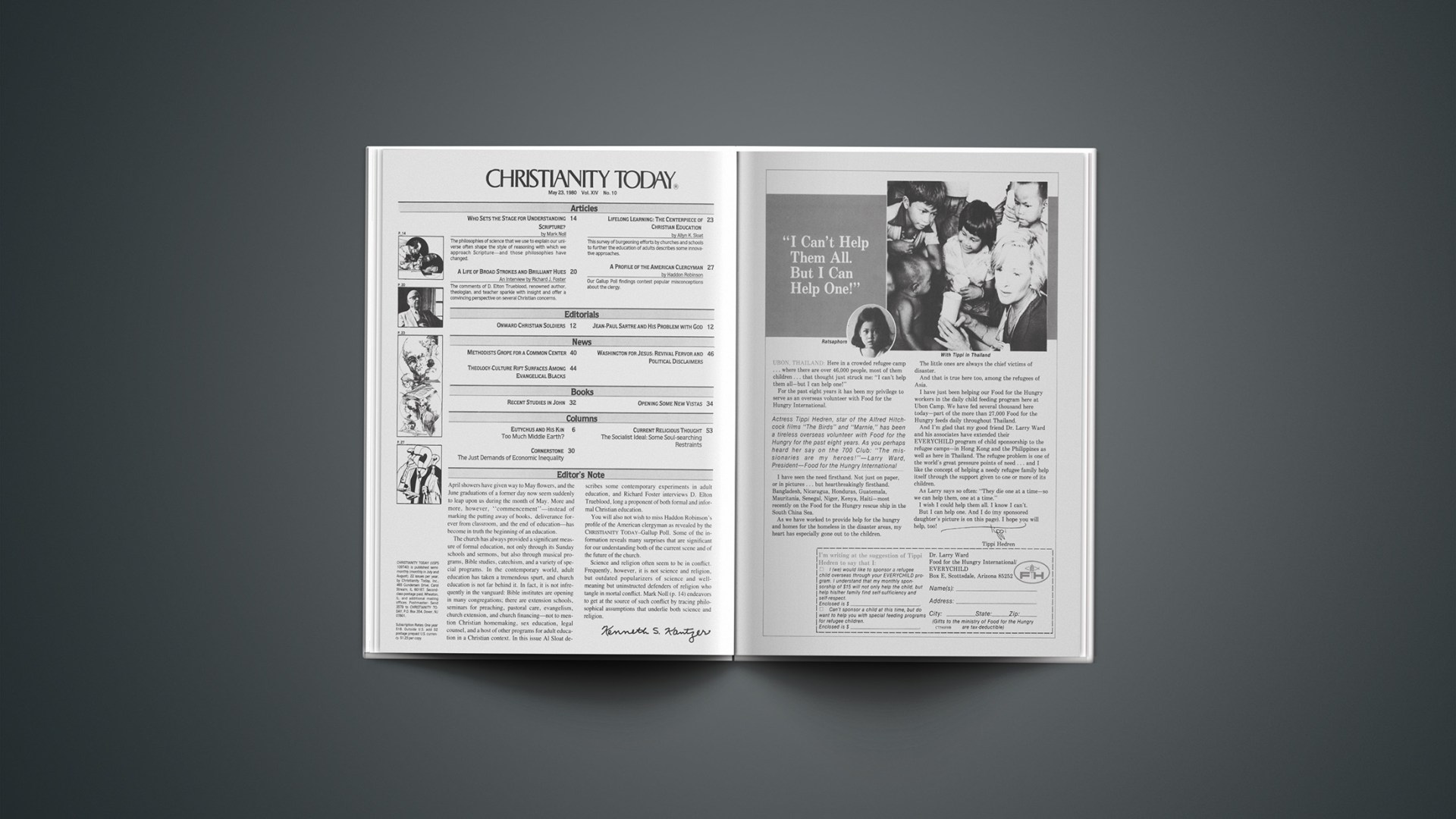April showers have given way to May flowers, and the June graduations of a former day now seem suddenly to leap upon us during the month of May. More and more, however, “commencement”—instead of marking the putting away of books, deliverance forever from classroom, and the end of education—has become in truth the beginning of an education.
The church has always provided a significant measure of formal education, not only through its Sunday schools and sermons, but also through musical programs, Bible studies, catechism, and a variety of special programs. In the contemporary world, adult education has taken a tremendous spurt, and church education is not far behind it. In fact, it is not infrequently in the vanguard: Bible institutes are opening in many congregations; there are extension schools, seminars for preaching, pastoral care, evangelism, church extension, and church financing—not to mention Christian homemaking, sex education, legal counsel, and a host of other programs for adult education in a Christian context. In this issue Al Sloat describes some contemporary experiments in adult education, and Richard Foster interviews D. Elton Trueblood, long a proponent of both formal and informal Christian education.
You will also not wish to miss Haddon Robinson’s profile of the American clergyman as revealed by the CHRISTIANITY TODAY-Gallup Poll. Some of the information reveals many surprises that are significant for our understanding both of the current scene and of the future of the church.
Science and religion often seem to be in conflict. Frequently, however, it is not science and religion, but outdated popularizers of science and well-meaning but uninstructed defenders of religion who tangle in mortal conflict. Mark Noll (p. 14) endeavors to get at the source of such conflict by tracing philosophical assumptions that underlie both science and religion.










